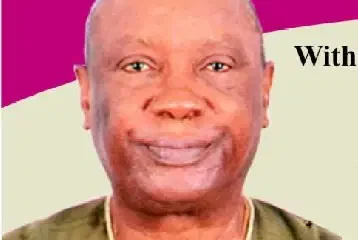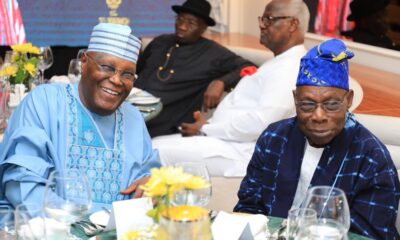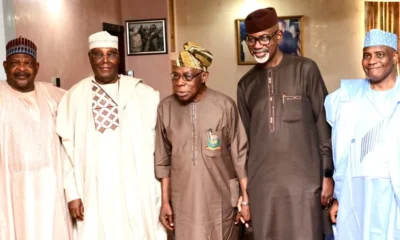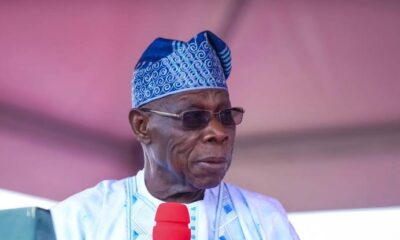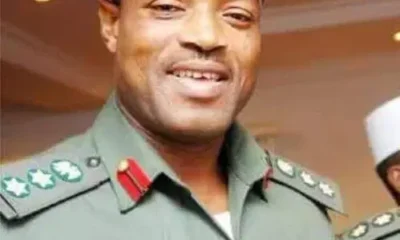Opinion
Obasanjo’s question to leaders who want to be like him, by Stephen Angbulu
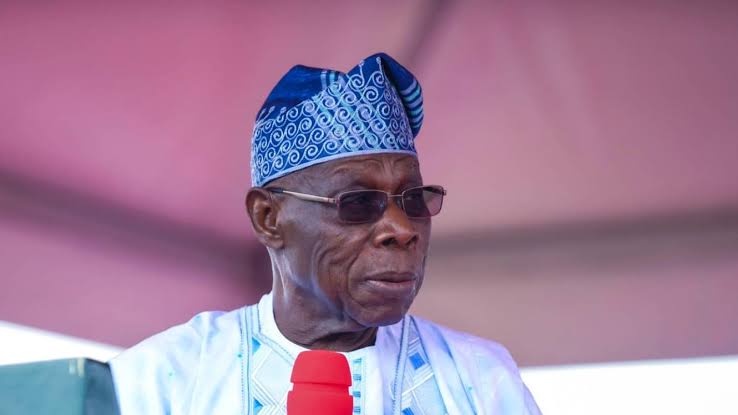
“I am sceptical when young leaders meet me and say they want to be like me. So, if you want to be like me. Do you also want to go to prison?” asked former President Olusegun Obasanjo as we all erupted with laughter.
That cool Thursday evening in Abeokuta, Ogun State, Obasanjo was hosting 100 young Africans from 40 countries to be honoured by His Majesty, the Ooni of Ife.
Before the award ceremony on Saturday, our itinerary included touring the Olusegun Obasanjo Presidential Library/Museum and holding a question-and-answer with the elder statesman afterwards. And boy, was it an experience!
Aside from having a close-up feel of events that happened long before most of us were born, awardees saw relics of a lesser-told story of Nigeria from the 1970s when Obasanjo ruled as military head of state and the early 2000s when he served as President.
For want of time, Obasanjo began by opening the floor for questions. And in answering the first question, he shared a few leadership principles he’d learned in and out of office.
✅ Strong character: When he threw the first question, “What is the fundamental requirement for good leadership?” Awardees chimed in the “Vision,” “Selflessness,” “Vision,” and all the nice-sounding values Obasanjo summarised into one word: Character. Is it possible to be a leader without character? Absolutely! But will you be a leader worth following? No! Your office may give you positional authority to get things done. But character gives you the moral authority to recruit the loyalty of those you lead. It also helps you succeed in an arena where many African leaders have failed: diversity management. “Every African leader is responsible for managing the diversity in their domain. You must learn to manage so many identities to ensure harmony,” he emphasised.
✅ Competence: With the moral higher ground secured, a good leader can channel his skills and abilities into solving real problems. Most leaders overplay their competence. That’s why they itch to control everything. A good leader with a healthy understanding of their abilities will focus on their core areas of strength, knowing that their area of weakness is an opportunity for others to shine, too.
✅ Capability: It’s easy to mistake competence for capability. But while competence refers to the specific skills, knowledge and behaviours required to perform specific tasks effectively, capabilities cover the broader ability and potential to adapt, grow, and achieve results beyond specific tasks. In this case, I’ll say competence gets the job done, but capability sets up structures and systems that get the job done no matter what.
✅ Compassion: It is one thing to be mentally aware of the sufferings of people; it is another to be touched by that suffering. The outcomes are not the same. Compassion enables a leader to relate with those he leads and make decisions that are in their best interest, not his own.
✅ Courage: A leader is not necessarily the most intelligent or competent person in the room but one who exercises the courage to act when others watch.
When asked what he would do differently if he were President again, Obasanjo said, “Nothing.” He said that while some of his decisions as President were far from perfect, he made them based on the knowledge available to him then.


